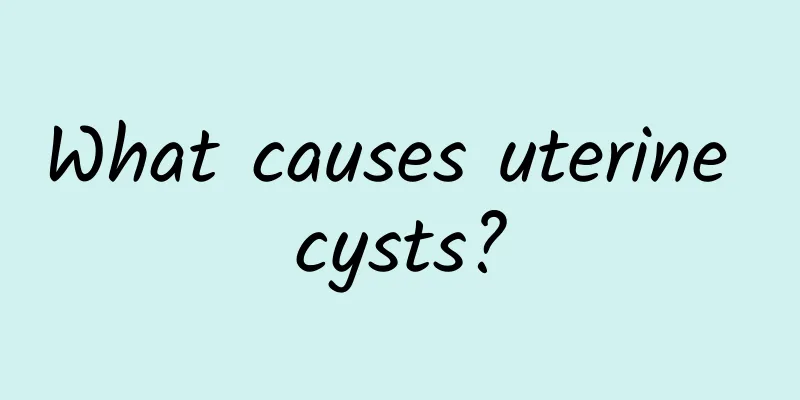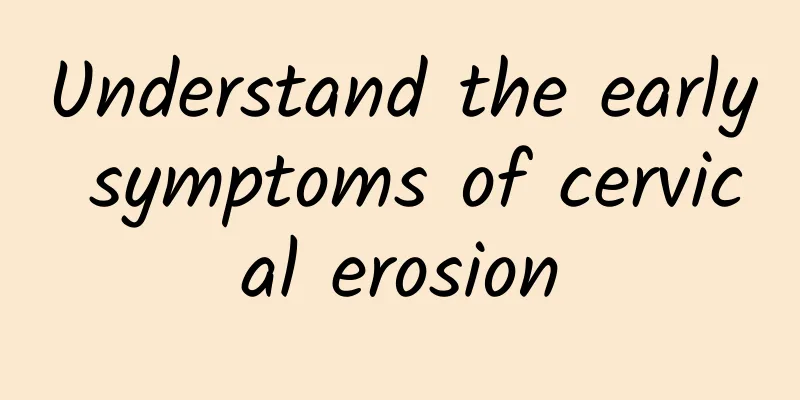What causes cervicitis?

|
Cervicitis is mainly caused by infection, physical or chemical stimulation, immune factors and other reasons. Common causes include bacterial, viral, fungal infection, unclean sexual life, hormone level changes, etc. Treatment should be based on the cause of the disease, including anti-infection drugs, local treatment or lifestyle adjustments. 1. Infection factors Bacteria, viruses and fungi are the main pathogens of cervicitis. Common bacterial infections include gonococci, Chlamydia trachomatis, etc. Viral infections such as human papillomavirus (HPV) are also relatively common. Fungal infections such as Candida may also cause cervicitis. These pathogens invade the cervix through sexual intercourse, unclean hygiene habits or low immunity, causing inflammation. 2. Physical or chemical stimulation Long-term use of vaginal washes, condom lubricants or sanitary napkins containing irritating ingredients may damage the cervical mucosa and cause inflammation. Frequent sexual intercourse, cervical surgery or mechanical damage during childbirth may also cause cervicitis. 3. Changes in hormone levels During the menstrual cycle, pregnancy or menopause, women's hormone levels fluctuate greatly, which may cause the cervical mucosa to lose resistance and become more susceptible to pathogens. When estrogen levels are too low, the cervical mucosa becomes thinner and more prone to inflammation. 4. Immune factors When the immune system is under-functioning, the body's defenses against pathogens are weakened, making it more susceptible to infection. People who are under long-term stress, malnourished, have chronic diseases, or use immunosuppressants have a higher incidence of cervicitis. Treatment 1. Drug treatment Bacterial infections can be treated with antibiotics such as azithromycin and doxycycline; viral infections such as HPV require antiviral drugs such as interferon; fungal infections require antifungal drugs such as fluconazole. Local treatments such as vaginal suppositories and washes can also relieve symptoms. 2. Lifestyle Adjustment Keep the vulva clean and dry, and avoid using irritating lotions. Pay attention to hygiene during sex and use condoms. Avoid frequent use of sanitary napkins or panty liners, and choose cotton underwear with good breathability. 3. Enhance immunity Eat a balanced diet and eat more foods rich in vitamins C, E and zinc, such as citrus fruits, nuts and whole grains. Do moderate exercise, such as yoga and jogging, to help improve immunity. Maintain a good work and rest schedule and avoid excessive fatigue. The treatment of cervicitis should be based on the specific cause and symptoms. Cervicitis caused by infection requires timely use of anti-infective drugs, inflammation caused by physical or chemical stimulation should avoid contact with irritating substances, and inflammation related to hormones and immune factors should be prevented by adjusting lifestyle and enhancing immunity. Regular gynecological examinations can help detect and treat cervicitis early and avoid worsening of the disease. |
<<: Is it good to take Chinese medicine for chronic adnexitis?
>>: How long does it take to recover from hysteroscopic surgery for endometrial polyps?
Recommend
Malaysia's Lo Yu Sheng is booming in the Year of the Dragon
The Lunar New Year is approaching, and mothers ar...
How to adjust the psychological balance of menopause? Do these 7 things regularly
Menopause is a process that every female friend h...
What is the natural enemy of uterine fibroids? Introduction to the natural enemy of uterine fibroids
What is the natural enemy of uterine fibroids? In...
Still worried about what to eat after exercise? Eating at convenience stores like this can help you gain muscle and lose fat!
As the trend of exercise becomes more popular, in...
Why do I have my period once every two weeks? How to treat irregular menstruation
Why do I have my period once every two weeks? How...
Experts explain how to care for patients with vulvar leukoplakia
As people pay more attention to women's healt...
Experts answer the symptoms of chronic adnexitis
Chronic adnexitis usually develops from acute inf...
Three major factors affecting the timing of postpartum menstruation
How long does it take to get your period after gi...
Analyze for you what are the main symptoms of cervicitis
Cervicitis is a very common disease in life, and ...
Celebrate Mid-Autumn Festival without oil jam! Nutritionist teaches 10 tips for healthy living
The Mid-Autumn Festival is approaching, and "...
What should we pay attention to when treating cervical hypertrophy?
What should we pay attention to when treating cer...
What are the treatments for vulvar itching?
For the disease of vulvar itching, it is necessar...
Clinical symptoms of vulvar pruritus
We must actively learn and grasp the clinical man...
I always eat out for three meals a day and only eat white rice. What should I do if it is high in starch?
Friends often ask Stella that they often hear nut...
What to use with motherwort to treat uterine fibroids? The efficacy of motherwort in treating uterine fibroids
What to use with motherwort to treat uterine fibr...









